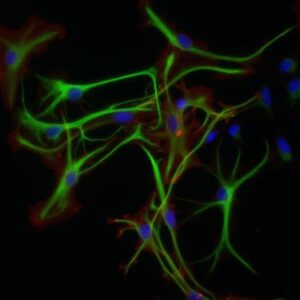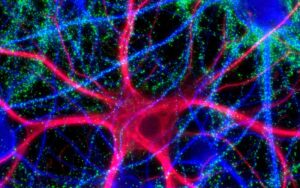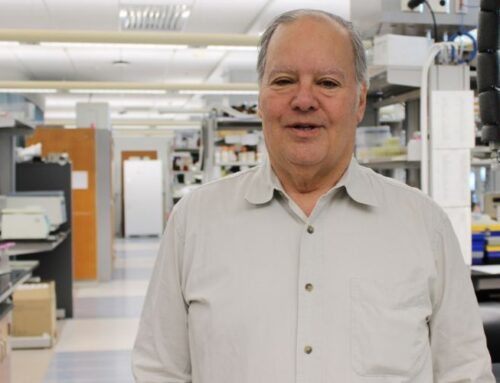Unlocking the Brain’s Hidden Dialogues: Dr. Isabella Farhy Sheds Light on Mental Health and Neurological Disease
By: TAMU Biology

Cultured astrocytes in green microscopic image
While neurons often get the spotlight in brain research, Dr. Isabella Farhy-Tselnicker (Farhy) is focused on their quieter, but equally essential, partners: astrocytes. In her lab at Texas A&M University’s Department of Biology, Dr. Farhy investigates how astrocytes and neurons communicate during brain development and how this delicate conversation goes awry in neurological and psychiatric disorders.
Astrocytes, a type of glial cell, were once thought to play only a supporting role in the brain. But recent discoveries, including those driven by Dr. Farhy’s research, reveal that astrocytes actively regulate how neurons grow, connect, and function. By studying how this interaction shapes brain circuitry, her team aims to understand what happens when the system breaks down in conditions like autism, schizophrenia, major depression, and Alzheimer’s disease.

Microscopic image of astrocyte showing its full morphological complexity in the brain
“Neuronal communication at specialized junctions called synapses is the basis for all our thoughts and actions,” says Dr. Farhy. “By understanding how astrocytes communicate with synapses in the healthy brain, we lay the foundation for understanding how these processes are altered in disease, bringing us closer to developing cures for debilitating brain disorders”.
Why It Matters

Mixed culture of all brain cells, showing astrocytes in red, neurons in blue and postsynaptic protein PSD95 in green
Millions of people are affected by brain disorders, yet many of the biological mechanisms behind them remain poorly understood. Dr. Farhy’s work brings us closer to decoding the root causes of these conditions, enabling earlier detection and the development of more targeted treatments. This kind of foundational research lays the groundwork for future breakthroughs in mental health and neurodegenerative disease care.





